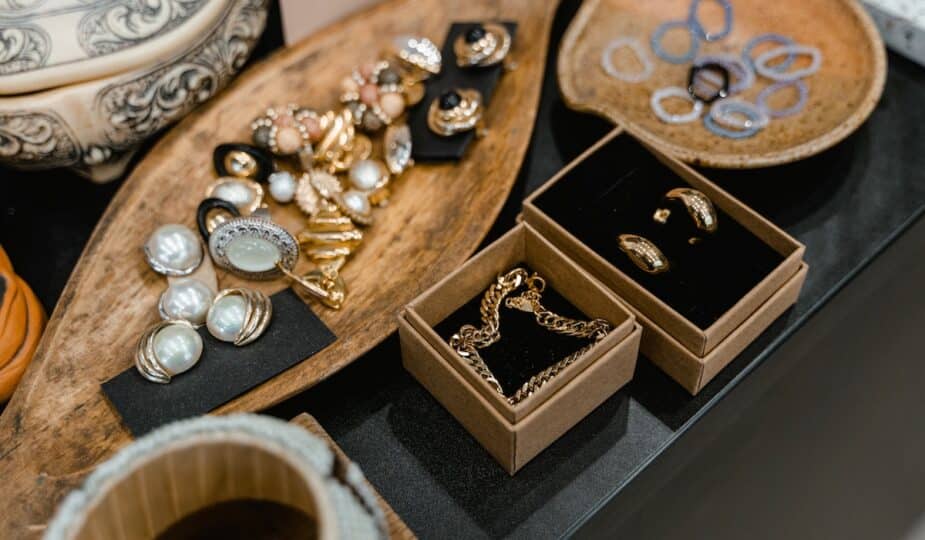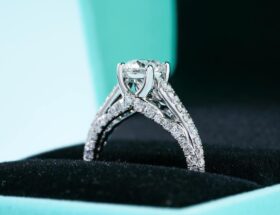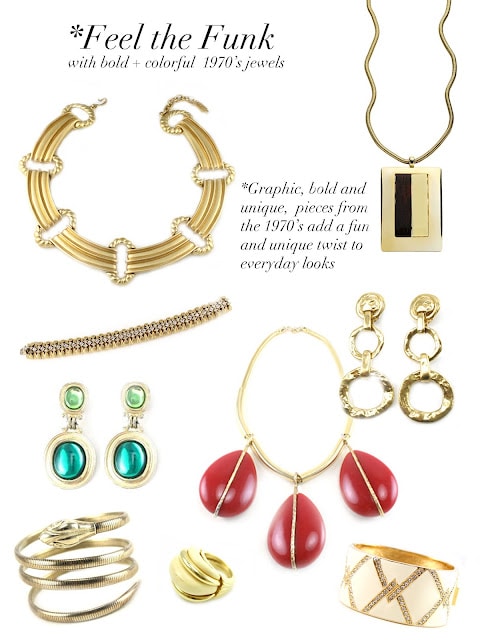The history of jewelry goes back to 3000 BC. Jewelry is a beautiful and treasured addition to any outfit, but it can lose its luster and shine over time if it is not properly cared for. To keep your jewelry looking its best and to extend its lifespan, it is important to clean and maintain it regularly. Here are some tips on how to do so:
Store your jewelry properly
Avoid storing your jewelry in a damp or humid environment, as this can cause tarnishing and discoloration. It is also a good idea to store each piece of jewelry separately to prevent scratching or tangling. To store your jewelry properly, there are a few things you can do:
- Use a jewelry box: A jewelry box with compartments or individual slots is a great way to store your jewelry and prevent it from getting tangled or scratched.
- Use small pouches or bags: Small pouches or bags are great for storing individual pieces of jewelry and can help prevent scratching.
- Use a jewelry tray: A tray with compartments is a good option for storing larger pieces of jewelry, such as bangles or chunky necklaces.
With these tips you can help ensure that your jewelry stays in good condition and is easy to find when you need it.
Clean your jewelry regularly
To clean your jewelry regularly, you can follow these steps:
- Mix a small amount of mild detergent with warm water: Use a bowl or cup to mix the solution. Avoid using hot water, as this can damage some types of jewelry.
- Gently scrub your jewelry using a soft-bristled toothbrush: Dip the toothbrush into the cleaning solution and gently scrub the surface of the jewelry. Be sure to pay extra attention to any crevices or intricate designs.
- Rinse thoroughly: After scrubbing, rinse your jewelry thoroughly under warm running water. Be sure to remove all soap suds and residue.
- Dry with a soft cloth: Gently pat your jewelry dry with a soft, lint-free cloth. Avoid rubbing the jewelry too hard, as this can cause scratching.
- For more delicate pieces, consider taking them to a professional jeweler for cleaning: Some types of jewelry, such as antique pieces or those with delicate gemstones, may require special care and should be cleaned by a professional.
By following these steps, you can help ensure that your jewelry stays clean and looking its best.
Remove your jewelry before performing certain tasks
To avoid damaging your jewelry, it is a good idea to remove it before performing certain tasks such as:
- Washing dishes: Water and soap can cause damage to your jewelry, particularly if it contains certain types of gemstones or metals.
- Cleaning: Chemicals found in cleaning products can damage your jewelry, so it is best to remove it before cleaning.
- Engaging in physical activities: Jewelry can get in the way or be damaged during activities such as sports or exercise, so it is best to remove it before participating.
By removing your jewelry before performing these tasks, you can help ensure that it stays in good condition and does not get damaged.
Protect your jewelry from harsh chemicals
To protect your jewelry from harsh chemicals, there are a few things you can do:
- Remove your jewelry before swimming: Chlorine found in pool water can damage and discolor your jewelry, so it is best to remove it before swimming.
- Avoid using cleaning products while wearing your jewelry: Many cleaning products contain harsh chemicals that can damage your jewelry. It is best to remove it before using these products.
- Store your jewelry away from chemicals: If you are storing your jewelry in a place where it may come into contact with chemicals, be sure to store it in a separate container or pouch to protect it.
- Keep your jewelry away from extreme heat: Extreme heat can cause damage to certain types of jewelry, such as pearls (here is our guide to care for pearls), and can cause certain metals to become brittle.
Repair any damage promptly
If your jewelry becomes damaged, it is important to have it repaired as soon as possible to prevent further damage. Here are some tips on how to do so:
- Identify the type of damage: Is the damage to the metal, the gemstones, or both? Knowing the type of damage can help you determine the best course of action.
- Consider the type of jewelry: Different types of jewelry may require different repair methods. For example, a ring with a broken band may need to be soldered, while a necklace with a broken clasp may need to be reattached.
- Take it to a professional jeweler: A professional jeweler will have the tools and expertise to properly repair your jewelry. Be sure to explain the damage in detail and ask for an estimate of the cost and time needed for the repair.
- Protect the jewelry while it is being repaired: If your jewelry needs to be sent out for repair, be sure to store it safely and protect it from further damage until it is returned.
By repairing any damage promptly, you can help ensure that your jewelry stays in good condition and continues to function properly.
Use a jewelry cleaner
To use a jewelry cleaner, follow these steps:
- Read the instructions on the product: Jewelry cleaners come in a variety of forms, such as liquids, dips, or creams. Be sure to read the instructions on the product to determine the correct amount and method of use.
- Protect any gemstones: If your jewelry contains gemstones, be sure to protect them from coming into contact with the cleaner. You can do this by using a soft toothbrush to apply the cleaner only to the metal parts of the jewelry.
- Soak the jewelry: Some jewelry cleaners require the jewelry to be soaked in the solution for a certain amount of time. Be sure to follow the instructions on the product to determine the correct soaking time.
- Rinse and dry: After soaking, rinse the jewelry thoroughly under warm running water and dry it with a soft, lint-free cloth.
- Avoid using jewelry cleaners on certain types of jewelry: Some types of jewelry, such as antique pieces or those with certain types of gemstones, may be sensitive to certain jewelry cleaners. It is best to consult with a professional jeweler before using a cleaner on these types of jewelry.
By following these steps, you can effectively clean your jewelry and restore its shine.
Avoid wearing jewelry in the shower
It is generally a good idea to avoid wearing jewelry in the shower for a few reasons:
- Water can cause damage to certain types of jewelry: Some types of jewelry, such as pearls, are sensitive to water and can become damaged if they are exposed to it for extended periods of time.
- Water can cause tarnishing: Water can cause certain types of jewelry, such as sterling silver, to tarnish or discolor.
- It is easy to lose jewelry in the shower: It can be easy to accidentally drop or lose jewelry in the shower, particularly if it is a small or slippery piece.
To protect your jewelry, it is best to remove it before showering. If you do need to wear your jewelry in the shower, be sure to dry it thoroughly afterward to prevent damage.
Be careful with gemstones
Gemstones can be more fragile than other types of jewelry and may require special care. Here are some tips for being careful with gemstones:
- Avoid exposing them to extreme heat or cold: Extreme temperatures can cause some gemstones to become damaged or brittle.
- Handle them gently: Gemstones can be easily scratched or chipped if they are not handled gently.
- Avoid wearing them during activities that may cause damage: Gemstones can be easily damaged if they are subjected to rough handling or impact. It is best to remove your gemstone jewelry before participating in activities such as sports or heavy lifting.
- Clean them carefully: Some gemstones may be sensitive to certain types of jewelry cleaners or cleaning methods. It is a good idea to consult with a professional jeweler before cleaning your gemstone jewelry.
Get your jewelry insured
Insuring your jewelry can help protect it in case of loss, damage, or theft. Here are a few things to consider when getting your jewelry insured:
- Determine the value of your jewelry: It is a good idea to have your jewelry appraised by a professional jeweler to determine its value. This will help you determine how much insurance coverage you need.
- Consider your insurance options: There are several options for insuring your jewelry, including through your homeowners or renters insurance, a personal articles policy, or a specialty jewelry insurance policy. Consider the pros and cons of each option and choose the one that best fits your needs.
- Keep receipts and appraisals: It is a good idea to keep receipts, appraisals, and any other documentation related to your jewelry in a safe place. This can help you prove ownership and value in the event of a claim.
- Regularly update your insurance coverage: As the value of your jewelry changes, it is important to update your insurance coverage to reflect the current value. This can help ensure that you are fully protected in case of loss or damage.
By getting a proper jewelry insurance coverage you can protect your valuable investment and have peace of mind.
Get your jewelry professionally checked
It is a good idea to have your jewelry professionally checked at least once a year to ensure that it is in good condition. Here are some things that a professional jeweler can check for:
- Loose or missing stones: A jeweler can check to see if any stones are loose or missing and can re-set or replace them as needed.
- Wear and tear: A jeweler can inspect your jewelry for any signs of wear and tear, such as thinning gold or silver, and can make necessary repairs.
- Damage: A jeweler can check for any visible damage, such as bent or broken prongs, and can make repairs to prevent further damage.
- Cleaning and maintenance: A jeweler can clean and polish your jewelry, and can suggest any necessary maintenance or repairs.
By following these simple tips, you can help keep your jewelry looking beautiful and shiny for years to come.


